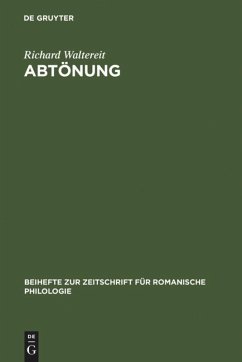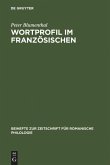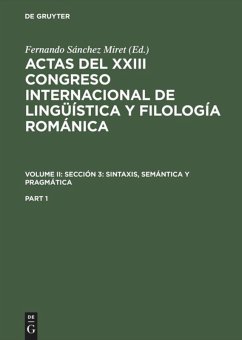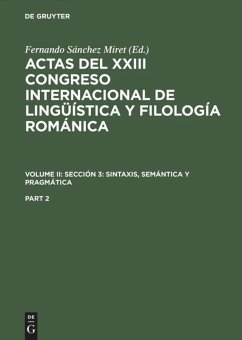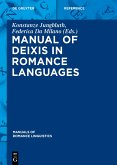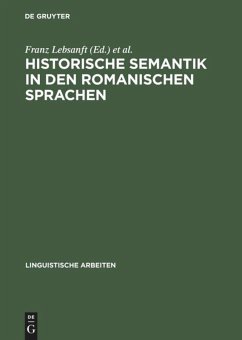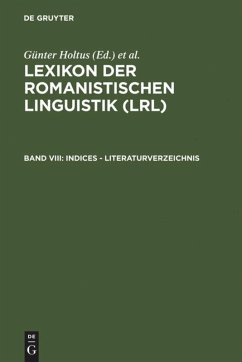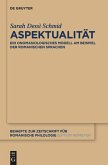The continental Germanic languages are well known to possess a wealth of modal particles (such as eigentlich, auch, and denn in German), whereas this is not the case in the Romance languages. The argument advanced here is that in Romance languages their functions are expressed by other means. To supply a tertium comparationis the study elaborates a communicative definition of modality, enabling us to identify forms of modal shading independently of translation comparisons. The investigation also demonstrates that in diachronic terms forms of modal shading (whether particles or not) are recruited from a specific type of language change.
Ausgehend von der bekannten Beobachtung, dass die festlandgermanischen Sprachen ein reiches Inventar von Modalpartikeln (z.B. dt. eigentlich, auch, denn) haben, die romanischen aber nicht, wird argumentiert, dass die Funktion der Modalpartikeln in romanischen Sprachen mit anderen Mitteln ausgedrückt wird. Als "Tertium comparationis" wird eine kommunikative Definition der Modalität entwickelt; diese erlaubt es, unabhängig von Übersetzungsvergleichen Abtönungsformen in romanischen Sprachen zu identifizieren. Es wird sodann in detaillierten Einzelstudien exemplarisch gezeigt, dass die Abtönungsformen, seien sie Partikel oder nicht, diachron in einem spezifischen Sprachwandeltyp rekrutiert werden. Dies wird belegt für die französische Partikel quand même, für portugiesische Diminutive, prosodische Konturen im Französischen und Spanischen sowie für die syntaktische Konstruktion der Rechtsversetzung im Italienischen.
Ausgehend von der bekannten Beobachtung, dass die festlandgermanischen Sprachen ein reiches Inventar von Modalpartikeln (z.B. dt. eigentlich, auch, denn) haben, die romanischen aber nicht, wird argumentiert, dass die Funktion der Modalpartikeln in romanischen Sprachen mit anderen Mitteln ausgedrückt wird. Als "Tertium comparationis" wird eine kommunikative Definition der Modalität entwickelt; diese erlaubt es, unabhängig von Übersetzungsvergleichen Abtönungsformen in romanischen Sprachen zu identifizieren. Es wird sodann in detaillierten Einzelstudien exemplarisch gezeigt, dass die Abtönungsformen, seien sie Partikel oder nicht, diachron in einem spezifischen Sprachwandeltyp rekrutiert werden. Dies wird belegt für die französische Partikel quand même, für portugiesische Diminutive, prosodische Konturen im Französischen und Spanischen sowie für die syntaktische Konstruktion der Rechtsversetzung im Italienischen.

